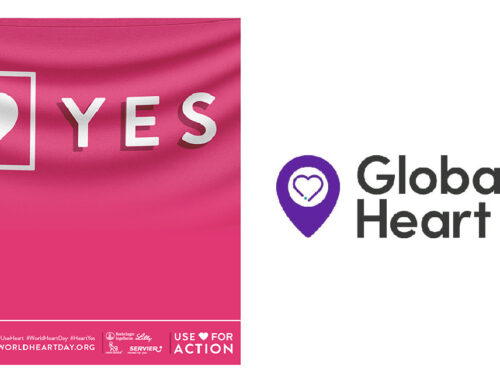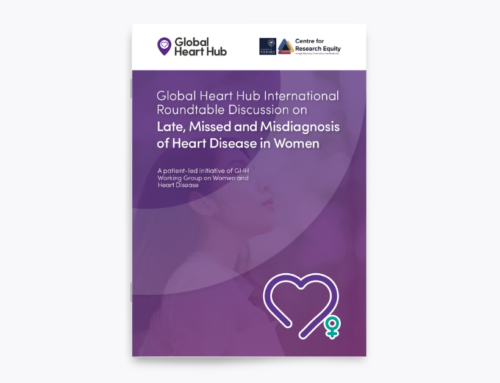COVID-19 and Diabetes – Advice from Global Heart Hub
Diabetes is a major risk factor for heart disease. Consequently, many diabetics are also living with heart conditions. Coronavirus can cause more severe symptoms and complications in people with diabetes and underlying heart disease. Understandably, COVID-19 can be a particular cause for concern for those living with diabetes.
What can people living with diabetes, their families and carers do?
For people living with diabetes it is important to take precautions to avoid the virus where possible. The recommendations for the general public are even more important for people living with diabetes and anyone in close contact with people living with diabetes.
- Personal hygiene is vital. Wash your hands thoroughly and regularly with hot water and soap (for a minimum of 20 seconds or more) or use hand sanitizer that contains at least 60% alcohol. This is especially important after blowing your nose, coughing, or sneezing, or having been in a public place.
- Avoid touching your face before you have washed and dried your hands.
- Clean and disinfect any objects and surfaces that are touched frequently (tables, door handles, light switches, handles, desks, toilets, taps, sinks & mobile phones).
- Avoid touching handrails, handshaking with people, etc. Use a tissue or your sleeve to cover your hand or finger if you must touch something.
- Don’t share food, glasses, towels, tools etc.
- When you cough or sneeze, cover your mouth and nose with a tissue or cough into your elbow if you don’t have a tissue to hand. Dispose of the tissue immediately after use and wash your hands.
- Try to avoid contact with anyone who is ill, particularly those showing symptoms of respiratory illness such as coughing.
- Avoid unnecessary travel; avoid large groups and avoid using public transport.
- Try and take regular exercise and maintain a healthy lifestyle.
- Maintain a list of all medications (including vitamins and supplements) and maintain a list of all your medical contacts such as doctors, healthcare team, pharmacy etc. in case you need them in an emergency.
- Be extra attentive to your glucose control. Regular monitoring can help avoid complications caused by high or low blood glucose. Make sure you will be able to correct the situation if your blood glucose drops suddenly.
- If you do show flu-like symptoms (raised temperature, cough, difficulty breathing), it is important to consult a healthcare professional. Any infection is going to raise your glucose levels and increase your need for fluids, so make sure you have access to a sufficient supply of water.
- If you live alone, make sure someone you can rely on knows you have diabetes in case you require their assistance if you become unwell.
- Try and maintain a regular schedule, avoiding overworking and ensure you get a good night’s sleep.
Healthy nutrition is an essential component of diabetes management. It is therefore important for people with diabetes to eat a varied and balanced diet to keep their blood glucose levels stable and support their immune system. It is recommended to give priority to foods with a low glycaemic index (e.g. vegetables, whole wheat pasta/noodles).
With the number of COVID-19 cases increasing on a daily basis, hospitals are experiencing an unprecedented demand on services. Consequently, many clinics and hospital appointments will be cancelled or deferred so as to reduce the strain on staffing and beds but be assured that hospitals will continue to treat patients.
Sign of Coronavirus
Common signs of Coronavirus infection are typical flu-like symptoms: a fever, cough, breathing difficulties, tiredness and muscle aches. Symptoms usually start within 3-7 days of exposure to the virus, but in some cases it has taken up to 14 days for symptoms to appear.
People of all ages can be infected however coronavirus presents a greater risk to people over the age of 60 years of age. While it is normal to feel anxious about how coronavirus might affect you, the first thing to know is that you are at no greater risk of developing COVID-19 than anyone else. However, if you do contract the virus you have a higher chance of developing complications – so prevention is key.
For many (more than 80% of cases), COVID-19 is mild, with minimal flu-like symptoms. Some people have not shown symptoms or only very mild symptoms, much like a common cold. The majority of people who have been infected with the virus have not needed to be hospitalized.
When people with diabetes develop a viral infection, it can be harder to treat due to fluctuations in blood glucose levels, and possibly, the presence of diabetes complications. There appear to be two reasons for this. Firstly, the immune system is compromised, making it harder to fight the virus and likely leading to a longer recovery period. Secondly, the virus may thrive in an environment of elevated blood glucose.
COVID-19 is a new coronavirus. Keep informed of the latest developments by looking out for updates and advice from your government, national diabetes organization and other reliable sources.





